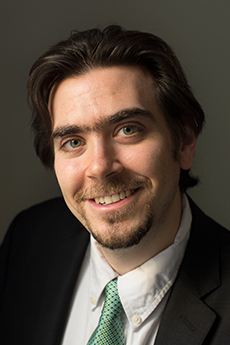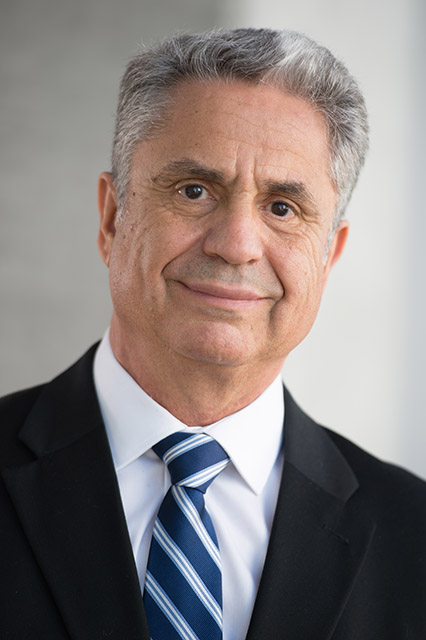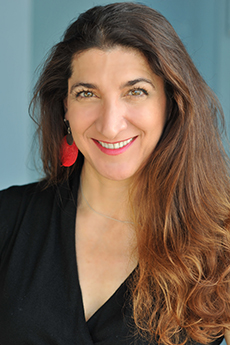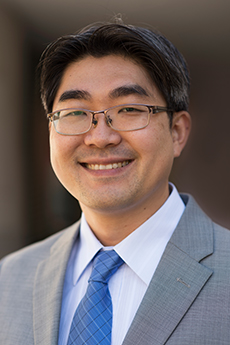Faculty News
Awards & Honors:
The National Academy of Inventors (NAI) announced on December 11 that it has elected Dr. Igor Efimov (BME) to the rank of NAI Fellow. Election to NAI Fellow status is the highest professional distinction accorded to academic inventors who have demonstrated a prolific spirit of innovation in creating or facilitating outstanding inventions that have made a tangible impact on quality of life, economic development and the welfare of society. Dr. Efimov will be inducted to the academy at a ceremony April 11, 2019, at Space Center Houston in Houston, TX. The GW Today article “ Biomedical Engineering Chair to Be Inducted in National Academy of Innovators" provides more information on Dr. Efimov and the honor.
Dr. David Broniatowski (EMSE) has been named a Fellow of the Psychonomic Society. This honor is given in recognition of significant psychological research publications beyond his doctoral dissertation in experimental psychology.
Research:
On December 4, the US Patent and Trademark Office granted Dr. Ahmed Louri (ECE) US Patent #10,148,593, for “Directional allocation of communication links based on data traffic loads.” The patent introduces interconnection links that have four functions; the links can dynamically function as: 1) forward repeaters; 2) backward repeaters; 3) forward buffers; and 4) backward buffers. This enables significant power reduction and improved circuit performance and reliability.
Conferences & Presentations:
On November 28–29, Dr. Lorena Barba (MAE) hosted 15 researchers, educators, and engineering faculty for a book sprint: in two and a half days, they collaboratively wrote the first draft of a Handbook for Teaching and Learning with Jupyter. The event was supported by a grant from Bloomberg to Project Jupyter to fund Jupyter Community Workshops; Dr. Barba’s proposal for this was one of only two funded this year. The open book continues to be edited and added to via an open-development model on GitHub. Follow #jupyter4edu on Twitter for updates. The book sprint was followed on December 1 by a “Jupyter Tutorial for Faculty,” attended by nearly 20 faculty from GW, George Mason, Gallaudet, Thomas Jefferson High School of Science and Technology, the Naval Academy, and others.

The Hong Kong Research Grants Council (RGC) invited Dr. Ken Chong (MAE) to participate in a December 6 group site visit to the City University of Hong Kong to monitor 14 Collaborative Research Fund (CRF) projects and discuss research activities and other areas of common concern with faculty and students. CRF projects are similar to National Science Foundation group awards. The visit started with a briefing by Dr. Ben Wah, RGC chair, who mentioned that there was a 10% increase in CRF funding to HK$110M [or US$14M] for 2018. Most of the CRF projects included some collaborative research with US professors.
Dr. Russell Hemley (CEE) recently gave two invited talks in Tsukuba, Japan. On December 11, he presented “Room Temperature Superconductivity: Lanthanum Superhydrides” at the 2nd International Conference on Room Temperature Superconductors (with special emphasis on novel materials under pressure), and on December 14, he presented “Near Room Temperature Superconductivity in High-Pressure Superhydrides” at the 31st International Symposium on Superconductivity.
On December 3, Dr. Chung Hyuk Park (BME) gave an invited seminar titled “Cognitive & Social Robotics” at the Digital Convergence Summit organized by the American Society of Association Executives: The Center for Association Leadership as a Thought Leader in the Machine Intelligence program. The Digital Convergence Summit takes CEOs, CIOs, CMOs, executive directors, and their executive teams to new heights with an in-depth exploration of machine intelligence and the powerful effects it will have on shaping the work of associations.
Publications:
Dr. Gina Adam (ECE) and her collaborators from University of Southampton have published a commentary paper in Nature Communications: G. C. Adam, A. Khiat, and T. Prodromakis. “Challenges hindering memristive neuromorphic hardware from going mainstream,” Nature Communications,” Vol. 9, No. 5267 (2018).
Dr. Danmeng Shuai (CEE) has recently published two papers. With his former Ph.D. student Dr. Tao Ye, he published: T. Ye, N. A. Banek, D. P. Durkin, M. Hu, X. Wang, M. J. Wagner, and D. Shuai. “Pd Nanoparticle Catalysts Supported on Nitrogen-Functionalized Activated Carbon for Oxyanion Hydrogenation and Water Purification,” ACS Applied Nano Materials, DOI: 10.1021/acsanm.8b01949. With his current Ph.D. student Hongchen Shen and post-doc Enrique López-Guerra, he published: H. Shen, E. A. López-Guerra, R. Zhu, T. Diba, Q. Zheng, S. D. Solares, J. M. Zara, D. Shuai, and Y. Shen. “Visible-light-responsive Photocatalyst of Graphitic Carbon Nitride for Pathogenic Biofilm Control,” ACS Applied Materials & Interfaces, DOI: 10.1021/acsami.8b18543. This collaborative work also includes significant contributions from Dr. Santiago Solares (MAE) and Dr. Jason Zara (BME), as well as students Ruochen Zhu (CEE), Tara Diba (BME), and Qinmin Zheng (CEE).
Dr. Volker Sorger (ECE) has recently published two articles: 1) R. Amin, R. Maiti, C. Carfano, Z. Ma, M. H. Tahersima, Y. Lilach, D. Ratnayake, H. Dalir, and V. J. Sorger. “0.52 V mm ITO-based Mach-Zehnder modulator in silicon photonics," APL Photonics, Vol.3, Issue 12; and 2) R. A. Hemnani, J. P. Tischler, C. Carfano, R. Maiti, M. H. Tahersima, L. Bartels , R. Agarwal, and V. J. Sorger. “ 2D material printer: a deterministic cross contamination-free transfer method for atomically layered materials,” 2D Materials, 6 (2019) 015006.
Media Mentions:
Dr. David Broniatowski’s (EMSE) research was featured in the Altmetric “Top 100” podcast. The annual Altmetric Top 100 highlights research published in 2018 that has generated significant international online attention and discussion – from post-publication peer review sites and public policy documents to mainstream media, blogs, Wikipedia, and social media platforms.
Other News:
Dictionary.com chose the word “misinformation” as the word of the year, and the article explaining its decision cites research by Dr. David Broniatowski (EMSE), “Weaponized Health Communication: Twitter Bots and Russian Trolls Amplify the Vaccine Debate.”
Student News
CS students Sundaresan Rajasekaran, Harpreet Singh Chawla, Zhen Ni, Neel Shah, and their advisor, Dr. Tim Wood (CS), published the paper “CRIMES: Using Evidence to Secure the Cloud” at the ACM Middleware Conference, held December 10-14 in Rennes, France. The paper proposes new approaches to detect malware using light weight checkpointing and virtual machine introspection techniques.
ECE master’s student Bhavesh Shinde and Ph.D. student Shiyuan Wang have been awarded $5,000 American Public Power Association (APPA)'s Demonstration of Energy & Efficiency Development (DEED) Research Grant Scholarships. Shiyuan will work on the project “Event Detection and Classification in Power Grids Using Machine Learning and Synchrophasor Technology” with the Municipal Electric Power Association of Virginia, while Bhavesh will work on the project "Advanced Artificial Intelligence for Online Power System Stability Surveillance” with the City of Manassas Department of Electric Utilities. Shiyuan and Bhavesh work in the GW SmartGrid Lab and are advised by Dr. Payman Dehghanian (ECE), who nominated them for the scholarships.
Other News
On December 8, the CS Department hosted its Faculty Appreciation Dinner at Nick's Riverside Grill to celebrate the outstanding achievements and hard work of the CS Department. 92 guests attended, including CS full-time and adjunct faculty, staff members, and Ph.D. students. During the event, guests enjoyed complimentary dining and remarks from the department chair, Dr. Robert Pless.
Student research help wanted: Dr. Gina Adam (ECE) and the ADAM (Adaptive Devices and Microsystems) Lab are looking for motivated CS undergraduate and master’s students for Spring 2019 to help with the development of a simulation platform for memristor-based neural networks and systems. Strong Python skills are a must; some C++ knowledge, ColonialOne familiarity, and basic knowledge of neural network algorithms are a plus; dependability and initiative are desired. If you are interested in this research, please email Dr. Adam and include your CV, transcripts, and the number of hours you can contribute per week.
Entrepreneurship News & Events
New SEAS Course: Social Impact Design Thinking
SEAS 4800.80 (CRN: 48682)/SEAS 6800.80 (CRN: 48683)
Spring 2019: Tuesdays 6:10 – 8:40 pm
SEH, 1450
Innovation starts with humans. Join an interdisciplinary social impact innovation class that puts human experience at the forefront of problem-solving and triple bottom line venture creation. Design thinking and human centered design are proven and repeatable problem solving methodologies that any discipline, profession, business, or social venture can employ to create social impact and value and achieve results. Interdisciplinary student teams apply design thinking to local challenges they research ethnographically, while facilitating partnerships with public and private Washington DC-based organizations. This class is a first of it its kind at GW in combining social innovation, design thinking, gear up, and business model creation.
GW is now offering a new interdisciplinary minor in creativity, innovation and entrepreneurship. The minor will give full-time, undergraduate students an opportunity to explore and integrate programs/courses from SEAS, CCAS, and ESIA. The choice of two field electives allows students to tailor the minor to match their interests in creativity, fine arts, design, media, environment, social impact, health care, and/or technology. Students may add this minor to their degree by bringing the minor form to their home school advising office.
Health Hackathon: This is a half-day hackathon to be held on March 29, 2019. It is sponsored by the Clinical and Translational Science Institute at Children’s National (CTSICN), a partnership between Children’s National Medical Center and GW. The purpose of the hackathon is to develop the requirements and prototype user interface for medical or public health software applications. There is no restriction on submission, but the entry should be an idea that could lead to a useful medical or public health software application. It can be extremely generic or highly specialized. Potential areas of interest include (but are not limited to): self-care, medical wellness, exercise physiology, clinical applications, public health, etc. The idea submission deadline is January 4, 2019. Submit your app idea via this simple form. Contact Sara Alyamani with any questions.
The GW New Venture Competition deadline is February 6, 2019. You still have plenty of time to take your sustainable ideas and enter them into the competition. Who knows, you could walk away with $25,000, plus the $10,000 clean energy prize! If you’re not ready yet, we get it. It can be intimidating to jump right in when you’ve never done anything like this before. Thankfully, the passionate and dedicated team of staff and mentor/coaches are ready to answer your questions and help you decide if this year’s opportunity is the right fit for you. If you’re on the fence about submitting, rest assured that you’re not the only one. Don't be shy. Don’t hesitate to reach out and learn more.
VentureWell’s E-Team Grant Program: VentureWell is looking for student-led teams with inventions that have the potential to positively impact the world. Teams can receive an E-Team grant and get training through VentureWell’s early-stage innovator training program. The program provides peer networking, expert coaching, national recognition, and hands-on workshops to move your innovation forward. The deadline to apply is February 6, 2019. Workshops will be held April 25-27 and May 9-11 in Boston, MA. To learn more, attend a webinar or office hour.
Panel Discussion: “Becoming an Entrepreneur: How to Harness Your Passion to Make Your Dream a Reality”
Wednesday, January 23
5:30 – 7:00 pm
Marvin Center, Room 302
Register
In partnership with the GW Honey W. Nashman Center for Civic Engagement and Public Service's King Week, this panel event will feature several innovative and successful entrepreneurs who will discuss how students can follow their dreams of starting their own ventures.
Webinars and Workshops: New Venture Competition 101
Thursday, January 24 | Monday, January 28 | Monday, February 4
Register for the In-Person Workshop (District House B117)
Register for the Webinars
Join the GW Office of Innovation & Entrepreneurship for an info session on how you can compete with your start-up idea in one of the nation’s top university competitions! Don’t miss out on your chance to compete for up to $300,000 in total prizes!
Panel Discussion: “Life After Shark Tank: It’s Not Just About The Money”
Wednesday, January 30
5:30 – 7:00 pm
Marvin Center, Betts Theatre
Register
The GW Office of Innovation & Entrepreneurship is excited to bring in a panel of previous Shark Tank participants and current DC-based entrepreneurs to talk with budding student entrepreneurs on campus about what it takes to really get in front of an investor and how to land those imperative business deals.







